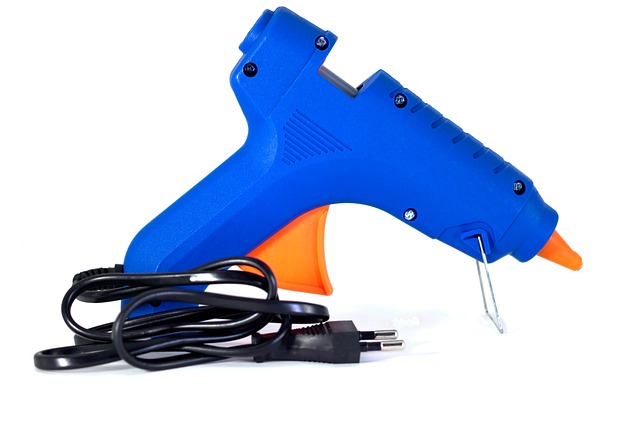From the initial steps of material fusion to the final touches on a completed product or project, the versatile, mess-free, and rapid adhesive capabilities of commercial-grade glue guns have revolutionized construction, manufacturing, and household projects alike. Whether you’re a DIY enthusiast or an industry professional, the right one can be your steadfast ally.
However, there are a few details you have to consider before adopting one as your go-to tool for every bonding need. In this comprehensive guide, we’ll walk you through the basics of industrial glue guns and explore a few different types to help you find the perfect one for your needs.
What makes industrial glue guns different?
Industrial glue guns are specifically designed for heavy-duty applications. They’re able to handle larger volumes of adhesive compared to traditional craft or hobby guns. They also have higher wattage, faster heating times, and more durable construction, making them more suitable for industrial environments. A few common uses for industrial glue guns:
- Packaging
- Product assembly
- Home construction
- Auto assemble and repair
- Furniture manufacturing
- Electrical component bonding
- Carpentry and woodworking
The anatomy of an industrial glue gun
While all glue guns are somewhat different, there are a few essential components they will all have. Learning them is the first step to understanding their inner workings and working with them effectively.
- Trigger: This is where the operator applies pressure to push the glue stick into the heating chamber.
- Heating chamber: If you’re working with a hot gun, this is where the solid glue stick is melted and turned into an industrial liquid adhesive.
- Nozzle: The nozzle determines the size and shape of the adhesive bead, which affects the bonding precision.
- Power switch: An on/off switch that controls the power supply to the heating chamber.
- Temperature control: Most industrial glue guns come with a feature that allows you to adjust (or fully customize) the heat settings according to the type of adhesive you’re using.
- Stand: A stable base keeps the glue gun upright when nobody’s using it, preventing spills and accidental burns.
Types of Industrial Glue Guns
They’re also available in a variety of sizes and types, including hot melt, cold clue, and spray applicators, to cater to different materials and bonding needs.
Hot melt glue guns
Hot melt glue guns are the most common type used in industrial settings. They use solid adhesive sticks that are heated to a melting point and applied in liquid form. Once cooled, they form a strong bond that can withstand high temperatures and pressures. They’re versatile and can bond with a wide variety of materials including wood, plastic, and metal.
Cold glue guns
Cold glue guns use an adhesive in liquid form, which is dispensed through a nozzle onto the surface being bonded. They’re ideal for bonding delicate or heat-sensitive materials and can provide a strong bond without damaging any material. They’re most commonly used in the packaging and paper industries.
Spray guns
Spray guns use a spray nozzle to apply adhesive in a fine mist or spray pattern. They’re ideal for bonding large surfaces together or hitting hard-to-reach areas with even distribution.
Maintenance and safety
The longevity and effectiveness of your industrial glue gun depend on proper maintenance and adherence to safety standards. A well-maintained tool ensures consistent performance and minimizes the risk of accidents. Prioritize the following when using and caring for an industrial glue gun:
- Regular cleaning (while the gun is still warm)
- Safe storage (away from the rush of industrial traffic)
- Caution when handling (to prevent burns)
Endnote
When finding the right industrial glue gun for your needs, carefully consider the various types, applications, features, brands, and safety measures. A well-informed decision can lead to smoother production processes and better project outcomes. With its versatility and strength, an industrial glue gun is a valuable addition to any toolbox or workshop.







